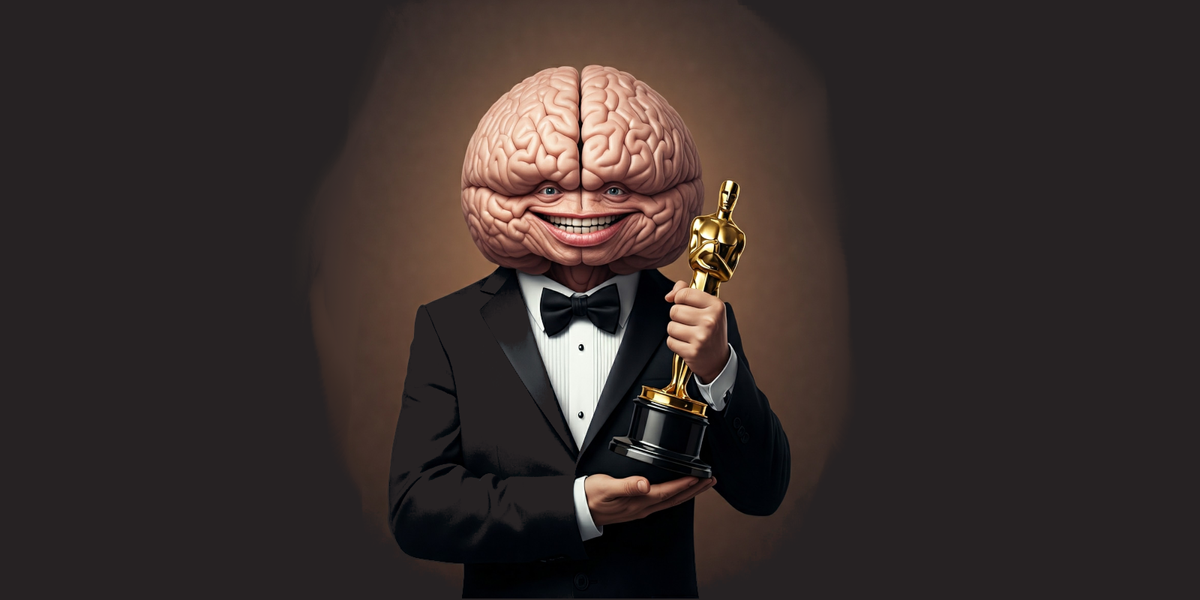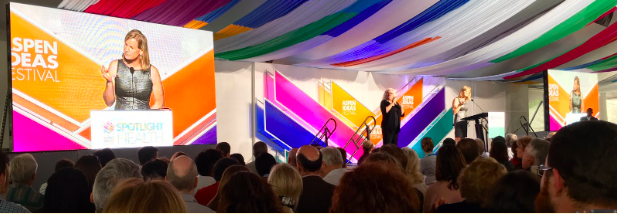And The Reward Goes To...

This week it's all about the weird ways that our brains create meaning from rewards..even when there is no meaning.
Also, I'm taking a 2 week break though the New Years. Have a wonderful end of 2024!
Follow me on LinkedIn or join my growing Bluesky!
Research Roundup
The Future's So Blurry, I Have to Wear Bifocals
Rewards literally alter cognition..and not for the better.
We know that “future events are imagined less vividly than immediate events, thereby diminishing their perceived value”. But in fact, it may be the reduced value that decreases vividness: “neural measures of vividness decline as rewards are delayed farther into the future” such that less valuable thoughts are less vivid.
What happens when rewards are turned up instead of down? When rewarded to learn statistical patterns in a series of pictures, monkeys hallucinated nonexistent patterns “as though some ordering…existed in” sets of random pictures. They even continued with these hallucinated patterns when rewarded to give them up. Since a model-free RL algorithm didn’t produce this “superstitious” behavior, the authors claim that the “monkeys infer abstract structures from objectively random events using heuristics that extend beyond stimulus–outcome conditional learning to more cognitive model-based learning mechanisms.”
Rewards change us—be thoughtful how you use them. Gamification ruins good things.
The Rewards of Poverty
Those from lower SES backgrounds showed less activation in reward-related brain areas when presented with infrequent rewards, compared to their higher-income peers. Interestingly, while higher reward rates encouraged exploration and faster responses in all participants, immediate rewards reinforced existing decision patterns and slowed responses, especially when rewards were scarce. This suggests that reward abundance may drive greater risk-taking and exploration, while scarcity reinforces more cautious, conservative behaviors. But poverty may erode sensitivity to these differences.
One real-world consequence in reward processing might be the lower organ donation rates in low-SES individuals. This is often attributed to mistrust of the medical system or lack of access to information, but individuals from lower-SES backgrounds seem to prioritize their physical bodies more in forming their sense of self, making the prospect of organ donation more psychologically challenging. This finding, based on seven studies across different countries and cultures, highlights the complex interplay between socioeconomic factors, self-perception, and decision-making.
Fortunately, the latter paper comes with recommendations to decrease these socioeconomic disparities. First, “emphasizing conceptions of selfhood prioritize non-physical aspects (e.g., the mind) over physical aspects (e.g., the body)” improves donation rates. Alternatively, lean into the physical by highlighting “organ donation as a means to extend one’s sense of self” also increase donations.
<<Support my work: book a keynote or briefing!>>
Want to support my work but don't need a keynote from a mad scientist? Become a paid subscriber to this newsletter and recommend to friends!
Weekly Indulgence

Talking GRIT and purpose at the Aspen Ideas Festival…
Stage & Screen
- January, LA: I wish I could say...some day :)
- January, Toronto: University of Toronto AI Day!
- February, Dublin: A private event but I know we'll do much more
- February, Athens: Medical school education
If your company, university, or conference just happen to be in one of the above locations and want the "best keynote I've ever heard" (shockingly spoken by multiple audiences last year)?
SciFi, Fantasy, & Me
I like it when I’m immersed in a story and I am rewarded with answers for the very questions I’ve been asking inside my head. I’ve learned to sit on my hands during science talks and wait a couple of slides, because a good storyteller (which includes good scientists) will reward your patience. (Shyamalan did this in The Sixth Sense—during a large swath of which I was frustratingly confused about Bruce Willis’s seeming lack of agency.) I’m only halfway through The Mercy of Gods, but the authors have already paid off my patient curiosity a few times. Will all of my questions be answered? Certainly not in book 1 of a trilogy, but I give authors my patience when they have earned it. (p.s. What fun having a character that can introspect on their introspection’s introspection.)
Vivienne L'Ecuyer Ming
| Follow more of my work at | |
|---|---|
| Socos Labs | The Human Trust |
| Dionysus Health | Optoceutics |
| RFK Human Rights | GenderCool |
| Crisis Venture Studios | Inclusion Impact Index |
| Neurotech Collider Hub at UC Berkeley | UCL Business School of Global Health |